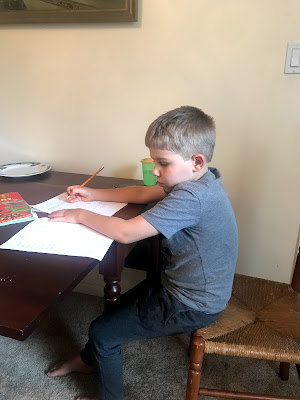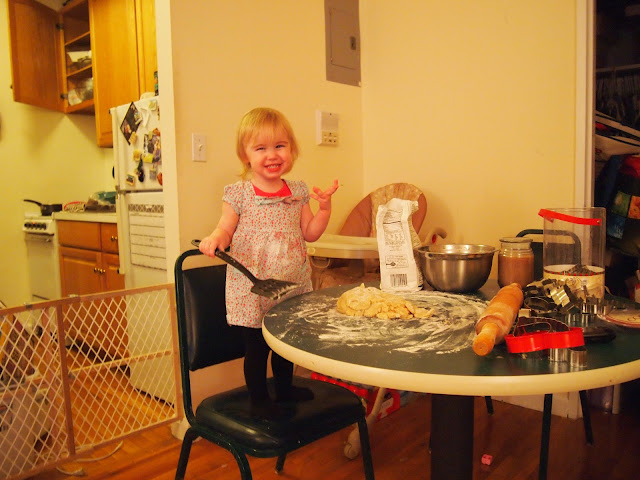Lyndon's Conference: The Family in Modern Society Part I
This past weekend was Lyndon's conference The Family in Modern Society at Columbia. He has worked so hard on this, pretty much since March until now. So this has taken up twelve months of our lives. All the hard work payed off. The conference was a success! Lyndon should be very proud of himself for putting on a conference discussing conservative topics at a very liberal university. We are going to have a series of post about the conference so be prepared to read. And really do read it. it is all very interesting.
Lyndon and I have participated with another organization, The Love and Fidelity Network, that puts on a similar conference every year at Princeton Universtiy (which is actually where we started to get to know each other). After attending the LFN conference for several years Lyndon felt inspired to have a similar conference at Columbia. We both are very passionate about perserving traditional families and marriage in our society. Lyndon felt that Columbia would benefit from having a conference centered on traditional family since the conservative arguments are not very often discussed at Columbia. That is how The Family in Modern Society conference came about.
During Lyndon's first year at Columbia Law he started an philisophical discussion group called Fidelio (after the group he was president of at BYU) that would meet and focus on social issues and their impact on the law. Lyndon founding this group was the first stepping stone to organizing his conference. He was able to get the group approved and become an official Columbia club which then made it easier for him to organize his conference. He needed a Columbia affiliated organization that supported these social issues in order to have the conference.
Fall of 2011, after attending the Princeton Conference, Lyndon decided he wanted to bring a similar conference to Columbia. He considered the idea during the winter, and in the spring of 2012 he spoke to his friend Ashley Crouch (then aLove and Fidelity coordinator). She was enthusiastic and they met in April to discuss possibilities. Encouraged by her support, Lyndon reached out to about a dozen student groups at Columbia Law School. Unfortunately none of them were interested. Undeterred he started looking for an ally among the faculty of Columbia University to support the conference. Several professors were sympathetic, but ultimately not one of the professors at Columbia Law School would support the conference. In late May, with little progress from his efforts, Lyndon changed tactics and began emailing academics he knew would support the conference.
The first big breaks came when first Lynn Wardle then W. Bradford Wilcox agreed to speak at the conference. Lynn Wardle was gracious enough to tentatively accept the invitation to speak before a date or place had been chosen. After his correspondence with Mr. Wardle, Lyndon fixed the date of February 16th 2013, hoping that he would be able to find a room at Columbia when advance classroom registration opened in late summer. Mr. Wilcox agreed to speak at the conference in late June, not knowing the uncertain foundation the conference was resting upon. Lyndon knew about Mr. Wilcox's research by attending Marriage prep classes with Christine at BYU the previous year. Her professor had spoken of Mr. Wilcox with high regard, and his work in support of the family was unparralleled. With Msrs. Wilcox and Wardle aboard, the conference became instantly more respectable.
Lyndon spent his free time this summer emailing all sorts of people who could possibly come and give lectures at this conference. He applied for a room at Columbia College. He applied for funding with the Love and Fidelity Network and ISI. Eventually, Richard Wilkins, Mark Regnerus, Sherif Girgis, Dawn Eden and Robert Lerman all agreed to speak at the conference. With five months to go until the conference, Lyndon was feeling confident that everything would go smoothly the rest of the way. Not so. With only two and a half months to go, Richard Wilkins passed unexpectedly. At this late moment, Lyndon had to decide whether to forge ahead with only six speakers or to try to fill the vacancy. He decided that the Conference would benefit from the perspective of one more scholar. Up until this point the conference had two sociologists, an economist, a philosopher, a theologian and a lawyer. Lyndon asked the noted historian, Paul Kerry, to deliver an address at the conference. Dr. Kerry is a friend and mentor from BYU who had expressed interest earlier in attending the conference, but an issue had prevented him from accepting. Lyndon approached him again, and even at the last minute he agreed to present his research on the family. So again with seven speakers the conference moved onto the home stretch.
Advertising was the biggest concern as the conference neared. Lyndon had three different posters made to advertise. Here is the most impressive one.
Lyndon and I have participated with another organization, The Love and Fidelity Network, that puts on a similar conference every year at Princeton Universtiy (which is actually where we started to get to know each other). After attending the LFN conference for several years Lyndon felt inspired to have a similar conference at Columbia. We both are very passionate about perserving traditional families and marriage in our society. Lyndon felt that Columbia would benefit from having a conference centered on traditional family since the conservative arguments are not very often discussed at Columbia. That is how The Family in Modern Society conference came about.
During Lyndon's first year at Columbia Law he started an philisophical discussion group called Fidelio (after the group he was president of at BYU) that would meet and focus on social issues and their impact on the law. Lyndon founding this group was the first stepping stone to organizing his conference. He was able to get the group approved and become an official Columbia club which then made it easier for him to organize his conference. He needed a Columbia affiliated organization that supported these social issues in order to have the conference.
Fall of 2011, after attending the Princeton Conference, Lyndon decided he wanted to bring a similar conference to Columbia. He considered the idea during the winter, and in the spring of 2012 he spoke to his friend Ashley Crouch (then aLove and Fidelity coordinator). She was enthusiastic and they met in April to discuss possibilities. Encouraged by her support, Lyndon reached out to about a dozen student groups at Columbia Law School. Unfortunately none of them were interested. Undeterred he started looking for an ally among the faculty of Columbia University to support the conference. Several professors were sympathetic, but ultimately not one of the professors at Columbia Law School would support the conference. In late May, with little progress from his efforts, Lyndon changed tactics and began emailing academics he knew would support the conference.
The first big breaks came when first Lynn Wardle then W. Bradford Wilcox agreed to speak at the conference. Lynn Wardle was gracious enough to tentatively accept the invitation to speak before a date or place had been chosen. After his correspondence with Mr. Wardle, Lyndon fixed the date of February 16th 2013, hoping that he would be able to find a room at Columbia when advance classroom registration opened in late summer. Mr. Wilcox agreed to speak at the conference in late June, not knowing the uncertain foundation the conference was resting upon. Lyndon knew about Mr. Wilcox's research by attending Marriage prep classes with Christine at BYU the previous year. Her professor had spoken of Mr. Wilcox with high regard, and his work in support of the family was unparralleled. With Msrs. Wilcox and Wardle aboard, the conference became instantly more respectable.
Lyndon spent his free time this summer emailing all sorts of people who could possibly come and give lectures at this conference. He applied for a room at Columbia College. He applied for funding with the Love and Fidelity Network and ISI. Eventually, Richard Wilkins, Mark Regnerus, Sherif Girgis, Dawn Eden and Robert Lerman all agreed to speak at the conference. With five months to go until the conference, Lyndon was feeling confident that everything would go smoothly the rest of the way. Not so. With only two and a half months to go, Richard Wilkins passed unexpectedly. At this late moment, Lyndon had to decide whether to forge ahead with only six speakers or to try to fill the vacancy. He decided that the Conference would benefit from the perspective of one more scholar. Up until this point the conference had two sociologists, an economist, a philosopher, a theologian and a lawyer. Lyndon asked the noted historian, Paul Kerry, to deliver an address at the conference. Dr. Kerry is a friend and mentor from BYU who had expressed interest earlier in attending the conference, but an issue had prevented him from accepting. Lyndon approached him again, and even at the last minute he agreed to present his research on the family. So again with seven speakers the conference moved onto the home stretch.
Advertising was the biggest concern as the conference neared. Lyndon had three different posters made to advertise. Here is the most impressive one.
Lyndon had a 2'x3' poster made of this and set it up in the law school.
With one week to go before the Conference began serious trouble began to brew. The Columbia Democrats learned about the conference on facebook, immediately threats, explitives, and insults appeared on the event's facebook page. Lyndon began monitoring the page periodically to remove offensive messages. The Columbia Democrats decided that this Conference was too radical to take place on Columbia's campus, and they planned a parrallel event in protest. As a result of this protest the Conference was forced to pay Columbia hundreds of dollars to post six security personnel at and around the conference. Someone should ask how much the Columbia Democrats were asked to pay!
So there you have it. These are all the events leading up to the Conference. Next post will be about what happened at the conference.

.JPG)


Comments
Post a Comment